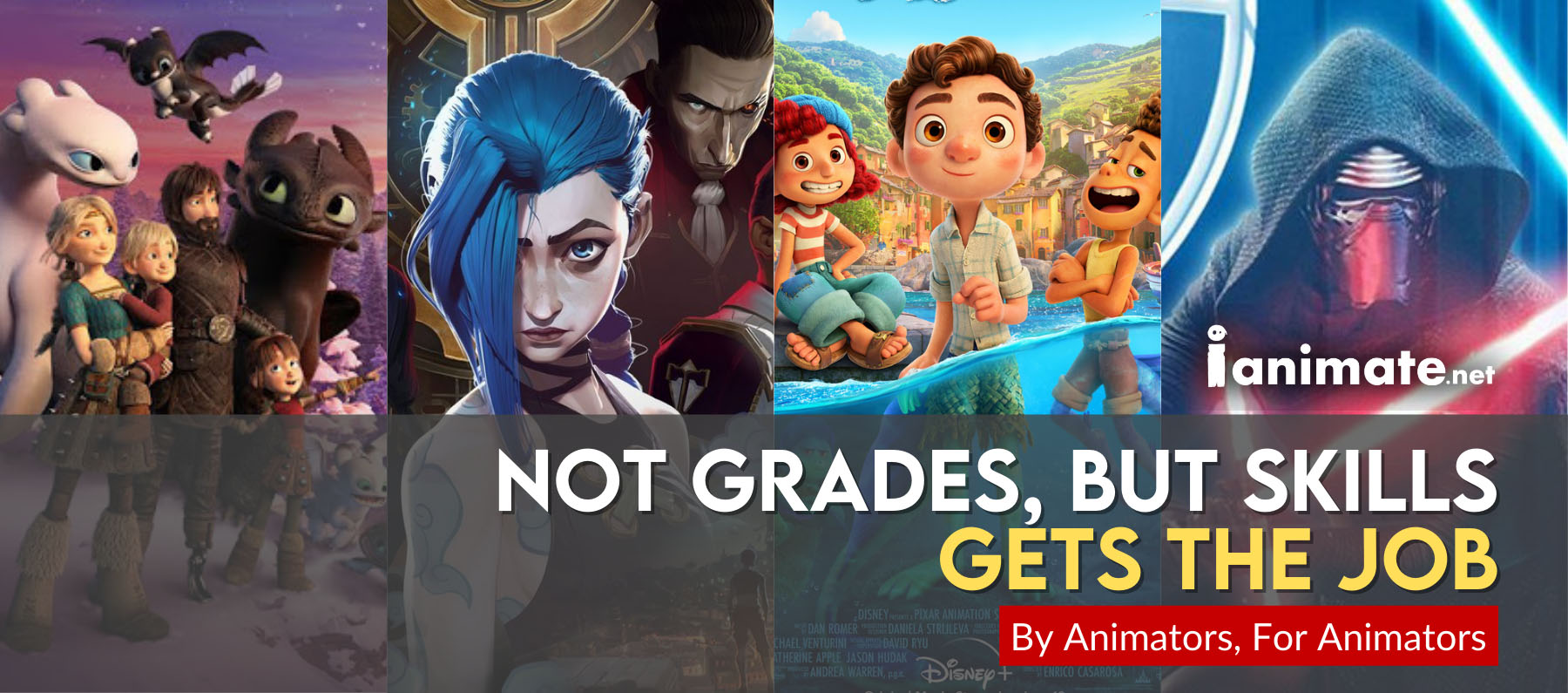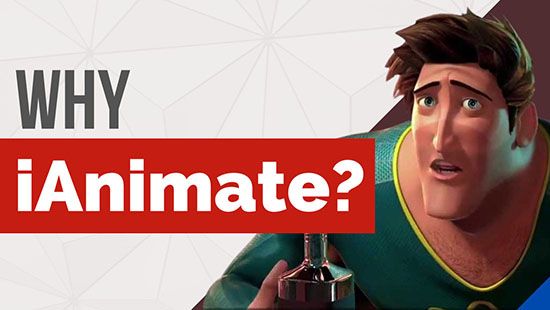Do You Need an Animation Degree? Discover the Pros and Cons
Article by Richard Arroyo & iAnimate Team
Do you need an animation degree to become an animator? Explore and weigh the pros and cons to make an informed decision to succeed in the animation industry.

Do You Need an Animation Degree?
In today's digital age, animation has become an integral part of various industries, including film, gaming, advertising, and education. With the demand for skilled animators on the rise, many aspiring artists wonder the question "Do you need an animation degree?" or is obtaining a formal animation degree necessary to succeed in the field? Let's explore the pros and cons of pursuing an animation degree and whether it's a prerequisite for a successful career in animation.
Pros and Cons of Getting an Animation Degree
Before diving into the necessity of an animation degree, it's essential to weigh the advantages and disadvantages it offers.
Pros of getting an animation degree
- Structured Learning: Animation degree programs provide a structured curriculum covering various aspects of animation, including 2D and 3D animation, character design, storytelling, and digital modeling. This structured approach helps students develop a comprehensive skill set.
- Access to Industry Professionals: Many animation degree programs are taught by industry professionals who have worked at renowned studios like Pixar, Dreamworks, and Disney. This direct interaction with experts offers invaluable insights and networking opportunities.
- Industry Recognition: Graduating from a reputable animation school can enhance your credibility and marketability in the industry. Employers often prefer candidates with formal education and a strong portfolio.
- Hands-On Experience: Animation degree programs typically include practical projects and internships, allowing students to gain hands-on experience and build their portfolios while still in school.
Cons of getting an animation degree
- Time and Cost: Pursuing an animation degree requires a significant investment of time and money. Most programs span three to four years and can be costly, especially if attending a prestigious art school or university.
- Rapidly Evolving Industry: The animation industry is constantly evolving, with new software, techniques, and trends emerging regularly. Some argue that formal education may struggle to keep pace with these rapid changes, making self-learning and adaptability crucial.
- Portfolio Over Degree: In creative fields like animation, employers often prioritize a strong portfolio showcasing artistic skills and creativity over formal education. For some, investing time and resources in building an impressive portfolio may be more beneficial than pursuing a degree.
- Alternative Learning Paths: With the abundance of online tutorials, workshops, and mentorship programs available, aspiring animators have access to alternative learning paths outside of traditional academia.
Do You Need It?
Many people believe that a degree in animation is needed to get into the industry. This is absolutely untrue, though.
Although it is not required to have a degree to become an animator, it occasionally comes in handy. In actuality, a lot of outstanding animators didn't even take college courses in animation or receive official training in it.
While an animation degree can undoubtedly provide valuable skills and opportunities, it's not the only path to a successful animation career. Alternative routes, such as online courses, self-study, mentorship, and networking, offer viable options for aspiring animators. Before committing to an animation degree, consider the following factors:
- Career Goals: Clarify your career goals and aspirations. Determine whether a formal animation education aligns with your objectives or if alternative learning paths better suit your needs.
- Learning Style: Reflect on your learning style and preferences. Some individuals thrive in a structured academic environment, while others prefer self-directed learning and hands-on experience.
- Financial Situation: Evaluate your financial situation and weigh the cost of tuition, living expenses, and potential student debt against the expected return on investment from obtaining an animation degree.
- Industry Insights: Seek advice from industry professionals and alumni to gain insights into the value of an animation degree within the industry. Consider attending industry events, workshops, and portfolio reviews to expand your network and gather firsthand information.
Animation Degree Programs and Curriculum
For those who decide to pursue a formal animation education, various degree programs are available to suit different preferences and career goals.
- Types of Animation Degrees: Animation degree programs range from bachelor's degrees in animation, computer animation, or digital arts to master's degrees specializing in animation or visual effects.
- Curriculum and Courses Offered: The curriculum of animation degree programs typically covers foundational courses in drawing, animation principles, character design, and digital production. Advanced courses may focus on specialized areas such as 3D modeling, rigging, texturing, and animation for games or film.
- Choosing the Right Program: When selecting an animation degree program, consider factors such as faculty expertise, facilities and resources, alumni success, industry partnerships, internship opportunities, and geographic location.
Exploring Animation Education in an Online School Environment
In today's digital age, online schools have revolutionized the way individuals learn animation. With the accessibility of technology and the rise of virtual classrooms, aspiring animators now have the opportunity to pursue their passion from anywhere in the world. Let's delve into the unique advantages and benefits of learning animation in an online school setting.
Flexibility and Convenience
One of the primary advantages of online animation schools is the flexibility they offer. Students can access lectures, tutorials, and assignments at their own pace and convenience, allowing them to balance their studies with work, family commitments, or other interests.
Expert Instruction
Online animation schools often boast a roster of industry professionals as instructors. These seasoned animators bring real-world experience and insights from top animation studios directly to the virtual classroom. Students benefit from their expertise, receiving personalized feedback, mentorship, and guidance on honing their craft. The opportunity to learn from industry veterans enriches the learning experience and prepares students for the demands of the animation industry.
Diverse Learning Resources
Online animation schools provide access to a wealth of learning resources, including video tutorials, interactive assignments, forums, and virtual labs. Through these diverse mediums, students can explore animation principles, software tools, and creative techniques in depth. Additionally, many online schools offer supplementary resources such as e-books, webinars, and industry guest lectures, enriching the learning experience and providing a comprehensive education in animation.
Collaborative Learning Environment
Despite the virtual nature of online schools, collaboration and interaction among students remain integral components of the learning process. Through discussion forums, group projects, and peer critiques, students engage with their peers, share ideas, and provide constructive feedback. This collaborative atmosphere fosters creativity, teamwork, and a sense of community, mirroring the dynamics of a traditional classroom setting.
Portfolio Development and Career Preparation
Online animation schools prioritize hands-on learning and portfolio development to prepare students for successful careers in the animation industry. Through practical assignments, projects, and portfolio reviews, students build a robust body of work that showcases their skills and creativity to potential employers. Additionally, many online schools offer career development resources, including resume building, job placement assistance, and networking opportunities, empowering students to pursue their professional aspirations with confidence.
Real-World Insights from Industry Professionals
To provide a holistic perspective on the necessity of an animation degree, let's hear from professionals who have navigated the animation industry with and without formal education.
Interviews with Animators Without Formal Animation Degrees
"I enrolled in iAnimate to further my skill development. I wanted to push my acting choices and lip-sync to the next level of appeal and to learn directly from industry professionals." - iAnimate Student Spotlight - Connor McGrew
“I knew that surrounding myself with incredible professionals and friendly animators would make a huge difference in my growth and point of view as an animator, so I thought iAnimate was the best option.” - iAnimate Student Spotlight - Gabriel Canepa
Perspectives from Animators with Animation Degrees
"I felt my skills were lacking and I had a clear step up to make to get hired into the industry so I took on iAnimate outside of work to make a reel I could be proud of." - iAnimate Student Spotlight - Rheal Doyle
“The instructors have a wealth of experience within the industry and it's great to be able to soak up some of their knowledge. I'm now more competent at facial animation and adding personality to my characters” - iAnimate Student Spotlight - Vicki Morrison
The importance of experience over a degree
In the animation industry, experience and skills are valued more than a degree. Many studios and companies look for animators with a strong portfolio and practical experience working on real-world projects. The ability to demonstrate your skills and creativity through your work is often more important than having a degree on your resume.
Conclusion
In conclusion, you don't need an animation degree to become an animator. but it also depends on your individual circumstances, goals, and learning preferences. While a formal animation education can offer structured learning, industry recognition, and valuable networking opportunities, it's not the only path to success in the animation industry. What's most important is gaining practical experience and building your skills through workshops, apprenticeships, and internships. The most important thing is to continue to be enthusiastic about your work and to improve your abilities and creativity, whether you decide to pursue a degree or a different route to become an animator. Alternative learning paths, self-study, and hands-on experience also play significant roles in developing the skills and portfolio necessary for a successful animation career.
If you're interested in pursuing animation and want to learn more about our online animation courses, jump in with iAnimate. We offer workshops designed to meet all your animation needs and provide you with the knowledge and motivation to help you reach your goals. Contact us today to learn more!
Unique FAQs
Q1: Is it essential to attend a prestigious animation school to succeed in the industry?
A: While attending a prestigious animation school can offer valuable networking opportunities and industry connections, success in the animation industry ultimately depends on the individual's talent, dedication, and portfolio quality. Many successful animators have emerged from a variety of educational backgrounds, including self-taught individuals and graduates from lesser-known institutions.
Q2: Can self-taught animators compete with those who have formal education?
A: Absolutely. The animation industry values talent, creativity, and skill above all else. Self-taught animators who possess a strong portfolio showcasing their abilities and a deep understanding of animation principles can compete on equal footing with those who have formal education. What matters most is the quality of the work and the ability to meet the demands of the industry.
Q3: What role does networking play in the animation industry?
A: Networking plays a significant role in the animation industry, providing opportunities for collaboration, mentorship, and career advancement. Building connections with fellow animators, industry professionals, and recruiters can lead to job opportunities, freelance gigs, and valuable insights into industry trends and best practices. Networking events, industry conferences, online communities, and social media platforms are excellent avenues for expanding one's professional network.
Q4: Are online animation courses and tutorials worth investing in?
A: Yes, online animation courses and tutorials can be valuable investments for aspiring animators. They offer flexibility, accessibility, and affordability compared to traditional education options. High-quality online courses provide comprehensive instruction in animation principles, software tools, and industry techniques, allowing students to develop essential skills at their own pace. Additionally, online tutorials offer opportunities for continuous learning and skill enhancement, making them beneficial for both beginners and experienced animators.
Q5: How important is it to stay updated with the latest trends and technologies in animation?
A: Staying updated with the latest trends and technologies in animation is crucial for remaining competitive and relevant in the industry. The animation landscape is constantly evolving, with advancements in software, rendering techniques, and storytelling approaches shaping the industry's direction. Animators who stay abreast of emerging trends and technologies can adapt their skills accordingly, meet industry demands, and produce content that resonates with audiences. Continuous learning and professional development are essential for staying ahead in the dynamic field of animation.






